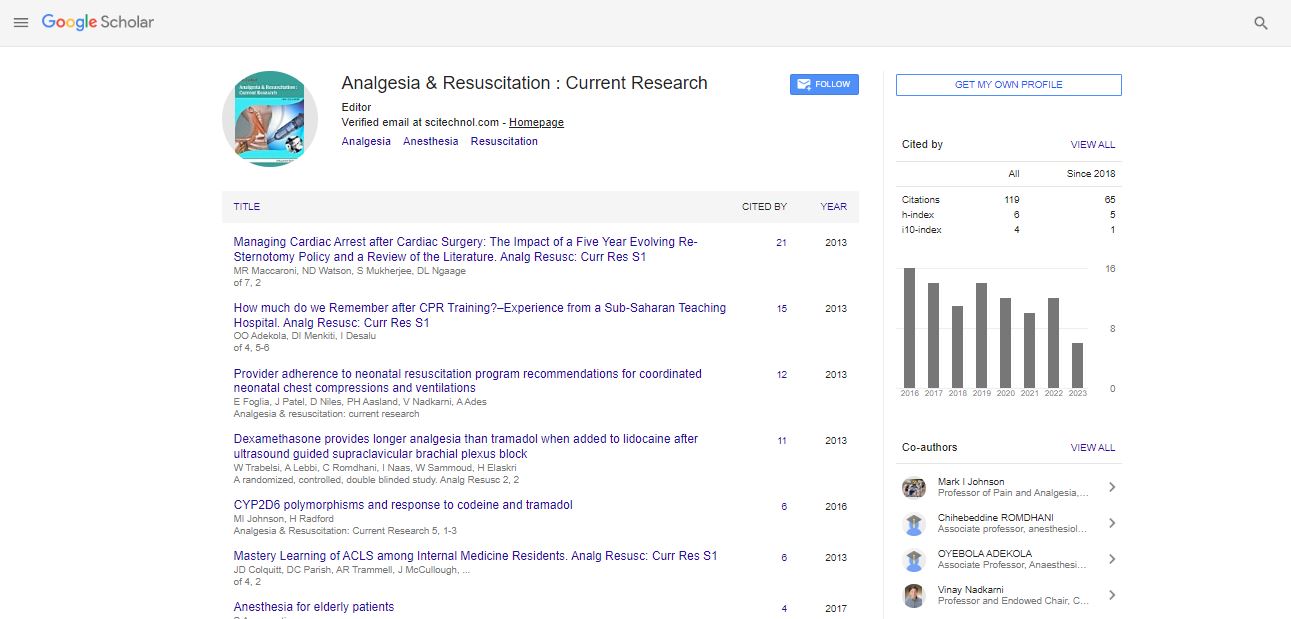Role of AMPA receptor phosphorylation in stress-induced pain chronification
Feng Tao
Texas A&M University Baylor College of Dentistry, USA
: Analg Resusc: Curr Res
Abstract
Chronic postsurgical pain is a serious issue in clinical practice. After surgery, patients experience ongoing pain or become sensitive to incident, normally non painful stimulation. The intensity and duration of postsurgical pain vary. However, it is unclear how chronic postsurgical pain develops. Here we showed that social defeat stress enhanced plantar incisioninduced AMPA receptor GluA1 phosphorylation at the Ser831 site in the spinal cord and greatly prolonged plantar incisioninduced pain. Interestingly, targeted mutation of the GluA1 phosphorylation site Ser831 significantly inhibited stress-induced prolongation of incisional pain. In addition, stress hormones enhanced GluA1 phosphorylation and AMPA receptor-mediated electrical activity in the spinal cord. Subthreshold stimulation induced spinal long-term potentiation in GluA1 phosphomimetic mutant mice, but not in wild-type mice. Therefore, spinal AMPA receptor phosphorylation contributes to the mechanisms underlying stress-induced pain chronification.
Biography
Feng Tao is an Associate Professor in the Department of Biomedical Sciences at Texas A&M University Baylor College of Dentistry. He received his RO1 award and Independent Scientist Award from NIH in 2012 and 2014, respectively. He has published more than 30 papers in peer-reviewed professional journals and he is serving as an Editorial Board Member for some professional journals. He also served as an invited reviewer for Johns Hopkins ACCM Seed Grant, NSF-sponsored Pilot Funding at Louisiana State University, Arizona Biomedical Research Commission, Britain Israel Research and Academic Exchange Partnership Regenerative Medicine Initiative, Wings for Life−Spinal Cord Research Foundation in Austria, and NIH NRCS Study Section.
 Spanish
Spanish  Chinese
Chinese  Russian
Russian  German
German  French
French  Japanese
Japanese  Portuguese
Portuguese  Hindi
Hindi 
